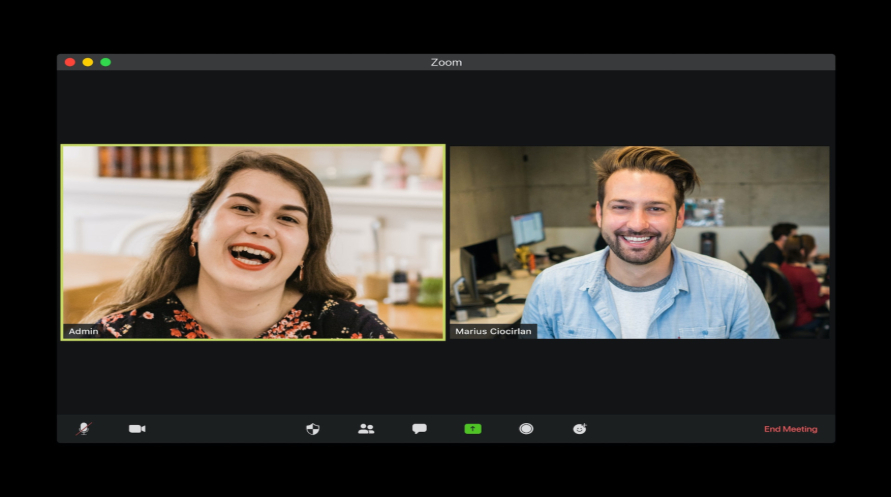As the business world evolves, so do the methods of retaining clients. Virtual events have become crucial for companies seeking to foster strong and lasting relationships with their clients.
With the capability to reach a vast audience from any corner of the globe, virtual events offer businesses a unique chance to interact and connect with their clients in a way that is both meaningful and memorable.
The significance of client retention cannot be overstated. Not only is it a critical component for the growth and prosperity of a business, but it also saves valuable resources that would otherwise be expended on acquiring new clients. By blending historical client retention tactics with the latest advancements in virtual event design, businesses can make a bottom-line impact with virtual events.
In this article, we provide a brief overview of virtual events as a tool for client retention, delve into the traditional techniques employed for retaining clients, and emphasize the importance of incorporating these techniques into virtual events.
Historical Client Retention Techniques
Relationship building, incentive programs, communication and feedback, consistency, and reliability are all historical client retention techniques businesses use for decades to retain clients and build strong relationships.
If you are having issues with client retention, many great resources are available. We suggest you go check out these articles in addition to this one:
- Client retention basics
- Stop the bleeding when you seem to be losing clients
- Setting up your business for great client retention
- Communications strategies for client retention
This post specifically addresses more nuanced ways to increase the likelihood of client retention using virtual events. We want to make sure we’re on the same page before we dive into that, so make sure your ducks are in a row with the following:

- Relationship Building: Creating a strong, personal connection with clients through personalized experiences, exceptional customer service, and building trust with the client, which can lead to increased loyalty and repeat business.
- Incentive Programs: These can be loyalty points, exclusive discounts, or special promotions. This technique rewards clients for loyalty and encourages repeat business.
- Communication and Feedback: Regular and open communication allows companies to understand their client’s needs, respond to their concerns, and address any issues promptly. Quick response to client feedback demonstrates a commitment to the client relationship and usually improves client satisfaction.
- Consistency and Reliability: This includes delivering quality products and services, meeting commitments and expectations, and maintaining consistent standards. By being dependable, businesses can demonstrate their commitment to the client relationship and foster long-term client loyalty.
Sure, it’s just four bullets, but this is foundational. If you’re not doing these things the best you can, or you aren’t doing some of them at all, you might want to get back to basics before trying to solve this issue with a virtual event.
Hope you can appreciate us being real with y’all.
Understanding Your Clients
By gaining insights into client preferences, interests, and needs, you can craft meaningful and memorable virtual events for each client. Start with understanding client demographics, interests, likes and dislikes through data collection and analysis. With this information, you can orchestrate virtual events that cater to your client’s unique tastes and preferences, thereby increasing customer satisfaction and the likelihood of repeat business.

Delivering top-notch customer service is critical in building lasting relationships with your clients. By responding promptly and knowledgeably to their inquiries and providing helpful and attentive support, you can instill confidence in your clients, fortify their trust in your business, and stand out in the competitive world of virtual events.
Example of how you can understand your clients and retain them
- Listen to their needs and concerns: Ask your clients open-ended questions and actively listen to their responses to understand their needs and concerns.
Example: Host breakout rooms in your virtual event staffed with your team, and tell the clients to let it fly, no holds barred.
- Keep in touch: Stay in touch with your clients through email, phone calls, or in-person meetings. This will help you understand their changing needs and provide relevant solutions.
Example: Host breakout rooms in your virtual event staffed with your team, tell the clients to let it fly, no holds barred.
- Offer personalized services: Clients appreciate personalized attention and tailored solutions to their needs. Offer customized packages and services that meet their unique requirements.
Example: One-on-manys. The many is your team; the one is the client. Have some office hours in a virtual event where clients can come and talk to you about whatever issue they have. Break the office hours rooms out into business functions, and have a virtual administrator to help direct people to the right room in chat.

- Solve problems promptly: Respond quickly and efficiently if a client faces any issue or complaint. Solve the problem to the best of your ability and provide a positive resolution.
Example: Set yourself up with a tech support team in each virtual event to handle those issues. Honestly, virtual events are not the medium best suited for general tech or product support. If you are working with an issue and ticketing system like Zendesk (one of our clients!) you’re better off paying more attention there so it doesn’t come to someone asking about an unrelated issue in a virtual event.
- Show appreciation: Acknowledge your clients’ loyalty and show appreciation for their business. Offer special promotions or discounts to reward them for their continued support.
Example: Tell customer stories at your all-hands meetings. Maybe send out a video team to take some great footage of their business, and make them a hero. Give them a Q&A opportunity during the event as valued customers.
Creating Virtual Events Tailored To Client Retention
Virtual events should encourage interaction and connection, such as incorporating interactive elements like live polls, Q&A sessions, or virtual networking opportunities. Gathering feedback and addressing concerns can demonstrate a commitment to the client relationship and improve their overall experience.
Office hours as a virtual event allows businesses to connect with clients in a personalized and convenient way. This increases customer satisfaction and improves the chances of repeat business.

Apologizing for mistakes and inspiring customers with a mission can build a sense of purpose and connection to the brand. Virtual event organizers can demonstrate their commitment to providing a positive experience and establish trust with customers by taking ownership of mistakes within the event or at future events showing how customer feedback has been heard and applied.
Convenience is essential in the virtual world, and companies looking to retain clients through virtual events can empower them by offering a user-friendly program and accessible support options. Providing easy-to-navigate interfaces, clear communication channels, and prompt customer service can help clients feel supported and valued.
Speaking directly to customers and setting the company apart from competitors with unique offerings and experiences can build trust and increase the chances of repeat business. Virtual event organizers can offer a variety of strategies to create a memorable experience, such as:
- Subscriptions and membership options: Offering subscription or membership options for virtual events can create a sense of exclusivity, repeat business, and value for customers.
- Education and value: Educating customers about new products or services, industry trends, or relevant topics can help create value and establish trust with clients. Virtual event organizers can foster a sense of community and provide value beyond the event by offering expert insights and exclusive content.
- Surprising with special offers and promotions: Virtual event organizers can surprise customers with special offers, promotions, or discounts that can create excitement, retain clients, and build loyalty and value.

- Leveraging social proof: Leveraging social proof, such as client testimonials and reviews, can help establish customer trust and credibility. Virtual event organizers can showcase successful events, client testimonials, and social media commentary to demonstrate their value and credibility.
- Offering support on the right platforms: Providing support on the right platforms, such as email, chat, or social media, can help clients feel heard and valued. By being accessible and responsive, virtual event organizers can create a positive customer experience and foster loyalty.
- Thanking customers: Expressing gratitude and thanking customers for their support can go a long way in building loyalty. This can be done through personalized thank-you notes, special offers, or exclusive events for loyal customers.
Most of the techniques mentioned here will give you an additional boost and new insights to expand your understanding of client retention strategies beyond those presented by Hubspot.
Measuring and Improving Retention Efforts
Measuring retention metrics, such as the number of repeat clients and customer lifetime value, helps provide an overall picture of client retention and can highlight areas that need improvement during virtual events. This data can track progress and refine retention strategies over time.
Another valuable approach to enhancing retention during virtual events is soliciting client feedback. Feedback from clients can be gathered in virtual events through surveys, live feedback sessions, and monitoring social media commentary, which can also help identify areas for improvement and places that have been successful.
For virtual events, it’s essential to continuously evaluate and refine retention strategies to ensure they remain effective. This process involves an ongoing examination of metrics, feedback, and industry trends, with adjustments as necessary.
Metrics such as the number of attendees in the virtual event, engagement levels, and the number of repeat visitors can provide valuable insights into the effectiveness of the virtual event.
Benefits of Applying Historical Client Retention Techniques to Virtual Events

Increased Attendance And Engagement
Incorporating historical client retention strategies into virtual events can boost attendance and involvement because they result in a more enjoyable and interactive experience for attendees. When attendees feel valued and engaged in the event, they are more likely to attend and participate in future events.
Historical client retention techniques, such as personalized follow-up communication, surveys, and interactive activities can help to increase attendance and engagement in virtual events.
By sending personalized emails or surveys to attendees after the event, you can gather feedback and make improvements for future events. Opportunities to grow a community, such as virtual networking opportunities or games increase engagement and encourage attendees to participate.
Creating that sense of community and connection among attendees can also increase the likelihood of client retention while also creating a more personally rewarding virtual event experience.
Repeat Business and Loyalty
When attendees have a positive experience, they are more likely to return for future events and recommend them to others. Hopefully, this will create a sustainable source of income and help establish your events as a trusted brand. Remember, this is more likely to happen when you reward loyalty somehow.
Loyalty programs can help achieve the goal of client retention by focusing on attendees’ needs and providing a well-rounded experience. For instance, offering exclusive rewards, discounts, or benefits to loyal attendees can incentivize them to return for future events and foster a sense of value and appreciation.

One of the most effective ways to promote loyalty and foster engagement is to provide attendees with opportunities to network, for instance, by hosting virtual networking sessions or organizing group activities, which build a strong sense of community. Personalized rewards and experiences are a fantastic way to enhance your brand’s image and make your attendees feel valued, thus encouraging them to become lifelong clients.
Offering special events for your VIP clients only in a high-touch setting or providing rewards for attending events are other ways to integrate customer loyalty into your client retention strategy. Works double if you specifically find a time suitable for your client before scheduling the event, as they’ll know you’re working around their schedule instead of vice versa. Rewards for attendance could be discounts on future products or services, additional VIP events, or access to thought leaders you bring in to consult on business issues your clients face daily.
And of course, we’re going to keep hammering this point home, but gathering feedback and incorporating it into future events demonstrates your commitment to providing a high-quality experience, further enhancing repeat business and loyalty as it increases attendance and engagement. When applied, shows loyal attendees that their opinions matter and that you are dedicated to improving their experience. Incorporating feedback also helps tailor the loyalty program to meet the needs and expectations of attendees, leading to a more enjoyable and personalized experience. Pro tip: send an email to the person who asked for a change and let them know you’ve made it.
Improved Reputation and Word of Mouth
A positive reputation can lead to increased attendance, repeat business, and loyalty, helping to sustain and grow your business.
When attendees have a positive experience, they are more likely to recommend your events to others, leave positive reviews, or provide word-of-mouth referrals. This helps spread the word about your events and attract new attendees, increasing attendance and revenue.

Increasing word of mouth can be a challenge, but there are many ways to boost it, here is a non-exhaustive list of the ways to increase word of mouth:
- Provide outstanding customer service
- Offer high-quality products or services
- Offer extended or unlimited warranties on products or services
- 100% personal satisfaction guarantees
- Encouraging customers to leave reviews and feedback
- Use social media to engage with customers and build a solid online presence
- Develop a referral program that rewards customers for referrals
- Participate in industry events and conferences to network and reach new customers
- Create content that provides value to customers and encourages sharing
- Host events or webinars that give value and foster positive experiences
- Collaborate with other businesses or organizations to reach new audiences
- Offer excellent after-sales support and follow-up
Now we know how to increase word of mouth traditionally, but how can we apply this in virtual events to retain more clients?
- Encourage attendees to share their experiences on social media and tag your brand
- Offer exclusive discounts or promotions to attendees who bring a friend or share the event on social media
- Use interactive tools to engage attendees and encourage them to participate in the conversation
- Provide opportunities for attendees to connect and share ideas
- Use social media and email marketing to stay in touch with attendees after the event and encourage them to share their experiences with others

- Host a Q&A session with industry experts and encourage attendees to submit questions and share the session with their network
- Share testimonials or positive feedback from past attendees to build trust and credibility with new attendees
- Collaborate with other businesses or organizations to expand the event’s reach and encourage attendees to bring their networks
To establish your virtual events as a reliable and trusted brand, it’s essential to demonstrate your commitment to providing a positive experience for attendees and listening to and applying their feedback. Over time, this can help to build trust and establish your events as a go-to choice for attendees looking for a positive and well-rounded experience.
Conclusion
There’s a lot to address for great client retention. As we mentioned before, business fundamentals should be addressed first, applying the fundamentals to virtual events is the cherry on top for your clients. Virtual events serve as a platform to strengthen the bond with existing clients while concurrently exhibiting the company’s mission and offerings. If you’re doing the rest of the things we mentioned, companies focused on creating memorable virtual events will more likely retain their clients and attract new ones, cementing a position as a leader in their industry.
By incorporating engaging content, interactive features, and effective communication, businesses can create virtual events that are both memorable and impactful. Investing in virtual events is an investment in client retention and overall business success.
Frequently Asked Questions
How can virtual events help to retain clients, and what are some examples of virtual events that are effective for client retention?
Provide your attendees opportunities to engage with your brand, learn about your products or services, and connect with other customers. By hosting virtual events, you can keep your clients engaged and build a stronger relationship with them, which can ultimately lead to increased loyalty and retention.
Some examples of virtual events that are effective for client retention include:
1. Webinars: These can be used to provide educational content to clients, such as tips for using your products or services, best practices, or industry insights.
2. Virtual conferences: These can be used to bring together clients from around the world to discuss industry trends, new products or services, and best practices.
3. Networking events: These can connect clients with each other and your team, providing opportunities for them to share experiences and build relationships.
4. Product demos: These can be used to showcase new products or features to clients, providing them with a virtual “hands-on” experience and an opportunity to ask questions.
5. Customer appreciation events: These can be used to thank clients for their business and provide them with exclusive access to new products or services.
What are some common mistakes to avoid when planning and executing virtual events for client retention?
Poor marketing resulting in low attendance is a missed opportunity to engage with clients. Failing to provide valuable content, not interacting with attendees, and not following up after the event can all negatively impact client retention efforts. Avoid overloading attendees with too much information or making the event too long, as this can lead to disengagement. Failing to segment your audience and advertising something that doesn’t apply to your client is also a turn-off.
How can I use virtual events to generate new leads and referrals from my existing client base?
Offering incentives for attendees who refer others to your event, such as exclusive content or discounts, can encourage attendees to bring in potential new clients. Incorporating calls to action throughout an event, such as encouraging attendees to share their experiences on social media or sign up for a newsletter, can also generate new leads and referrals.
Can virtual events replace in-person events for client retention?
In-person events provide a more personal touch and allow for face-to-face interactions, which can help to build stronger connections and trust between businesses and their clients. Face-to-face is different via virtual events, but for the increased productivity (i.e. more actual face time) the benefits can outweigh the lack of physical interaction.
How can businesses measure the success of virtual events for client retention?
Track metrics such as attendance rates, engagement levels, and feedback from attendees along with customer retention rates and revenue generated from existing clients to determine the overall impact of virtual events on client retention.
What are the benefits of using virtual events for client retention?
The benefits include; increased client engagement, stronger relationships, increased loyalty and retention, improved customer satisfaction, and the ability to provide valuable content to clients.
How can businesses ensure the success of virtual events for client retention?
Provide valuable content that meets the needs and interests of your clients, and engage with attendees before, during, and after the event for feedback. You can also track in-event metrics like attendance rates, engagement levels, and view time. With all this info, compare it to a control group that wasn’t invited to or didn’t attend that virtual event and see if there’s a change in retention or revenue.
Read More:






